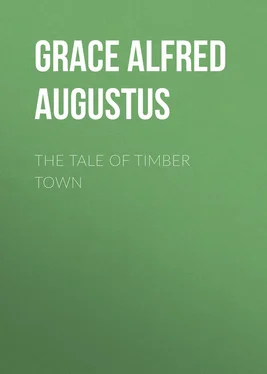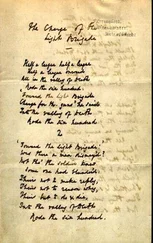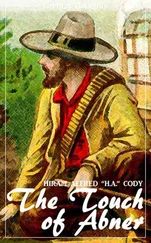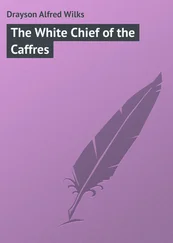Alfred Grace - The Tale of Timber Town
Здесь есть возможность читать онлайн «Alfred Grace - The Tale of Timber Town» — ознакомительный отрывок электронной книги совершенно бесплатно, а после прочтения отрывка купить полную версию. В некоторых случаях можно слушать аудио, скачать через торрент в формате fb2 и присутствует краткое содержание. Жанр: foreign_antique, foreign_prose, на английском языке. Описание произведения, (предисловие) а так же отзывы посетителей доступны на портале библиотеки ЛибКат.
- Название:The Tale of Timber Town
- Автор:
- Жанр:
- Год:неизвестен
- ISBN:нет данных
- Рейтинг книги:5 / 5. Голосов: 1
-
Избранное:Добавить в избранное
- Отзывы:
-
Ваша оценка:
- 100
- 1
- 2
- 3
- 4
- 5
The Tale of Timber Town: краткое содержание, описание и аннотация
Предлагаем к чтению аннотацию, описание, краткое содержание или предисловие (зависит от того, что написал сам автор книги «The Tale of Timber Town»). Если вы не нашли необходимую информацию о книге — напишите в комментариях, мы постараемся отыскать её.
The Tale of Timber Town — читать онлайн ознакомительный отрывок
Ниже представлен текст книги, разбитый по страницам. Система сохранения места последней прочитанной страницы, позволяет с удобством читать онлайн бесплатно книгу «The Tale of Timber Town», без необходимости каждый раз заново искать на чём Вы остановились. Поставьте закладку, и сможете в любой момент перейти на страницу, на которой закончили чтение.
Интервал:
Закладка:
He slipped his dirty apron over his head, put on his coat and weather-beaten hat of strange outlandish shape, placed the ring in a dainty, silk-lined case, and sallied forth into the street.
Timber Town burst on his benignant gaze. Over against him stood a great wooden shop, painted brilliant blue; along the street was another, of bright red; but most of the buildings were a sober stone-colour or some shade of modest grey or brown. One side of the street was verandah’d along its whole length, and the walks on either side of the macadamised road were asphalted. Benjamin, wearing the air of Bacchus courting the morning, walked a hundred yards or so, till he came to the centre of the town, where four streets met. At one corner stood the Kangaroo Bank; at another a big clothing-shop; at the two others Timber Town’s rival hostelries – The Bushman’s Tavern and The Lucky Digger. The Bank and hotels, conspicuous amid the other buildings, had no verandahs in front of them, but each was freshly painted; the Bushman’s Tavern a slate-blue, The Lucky Digger a duck-egg green.
The sun was hot; the iron on the roofs ticked in the heat and reflected the rays of heaven. Benjamin paused on the edge of the pavement, mopped his perspiring brow, and contemplated the garish scene. Opposite the wooden Post Office, which flanked the “clothing emporium,” stretched a rank of the most outlandish vehicles that ever came within the category of cabs licensed to carry passengers. Some were barouches which must have been ancient when Victoria was crowned, and concerning which there was a legend that they came out to the settlement in the first ships, in 1842; others were landaus, constructed on lines substantial enough to resist collision with an armoured train; but the majority were built on a strange American plan, with a canopy of dingy leather and a step behind, so that the fare, after progressing sideways like a crab, descended, at his journey’s end, as does a burglar from “Black Maria.”
Along the footpaths walked, in a leisurely manner, a goodly sprinkling of Timber Town’s citizens, with never a ragged figure among them.
Perhaps the seediest-looking citizen “on the block” was Tresco himself, but what he lacked in tailoring he made good in serene benignity of countenance. His features, which beamed like the sun shining above him, were recognised by all who passed by. It was, “How do, Benjamin; bobbin’ up, old party?” “Mornin’, Tresco. You remind me of the rooster that found the jewel – you look so bloomin’ contented with yourself.” “Ah! good day, Mr. Tresco. I hope I see you well. Remember, I still have that nice little bit of property for sale. Take you to see it any time you like.”
With Benjamin it was, “How do, Ginger? In a hurry? Go it – you’ll race the hands round the clock yet.” “Good morning, Mr. Flint. Lovely weather, yes, but hot. Now, half-a-pint is refreshing, but you lawyers have no time – too many mortgages, conveyances, bills of sale to think about. I understand. Good morning.” “Why, certainly, Boscoe, my beloved pal. Did you say ‘half’? – I care not if it’s a pint. Let us to the blushing Hebe of the bar.”
Tresco and his friend, Boscoe, entered the portals of The Lucky Digger. Behind the bar stood a majestic figure arrayed in purple and fine linen. She had the development of an Amazon and the fresh face of a girl from the shires of England. Through the down on her cheek “red as a rose was she.”
Tresco advanced as to the shrine of a goddess, and leant deferentially over the bar. Never a word spoke he till the resplendent deity had finished speaking to two commercial travellers who smoked cigars, and then, as her eyes met his, he said simply, “Two pints, if you please, miss.”
The liquor fell frothing into two tankards; Boscoe put down the money, and the goddess withdrew to the society of the bagmen, who talked to her confidentially, as to their own familiar friend.
Tresco eyed the group, smilingly, and said, “The toffs are in the cheese, Boscoe. You’d think they’d a monopoly of Gentle Annie. But wait till I get on the job.”
Boscoe, a wizened little tinsmith, with the grime of his trade upon him, looked vacuously to his front, and buried his nose in his pot of beer.
“Flash wimmen an’t in my line,” said he, as he smacked his lips, “not but this yer an’t a fine ‘piece.’ But she’d cost a gold mine in clo’es alone, let alone brooches and fallals. I couldn’t never run it.” Here one of the gaudy bagmen stretched out his hand, and fingered the bar-maid’s rings. The girl seemed nothing annoyed at this awkward attention, but when her admirer’s fingers stole to her creamy chin, she stepped back, drew herself up with infinite dignity, and said with perfect enunciation, “Well, you have got an impudence. I must go and wash my face.”
She was about to leave the bar, when Tresco called after her, “My dear, one minute.” From his pocket he drew the dainty ring-case, and held it out to the girl, who took it eagerly. In a moment the gem was on her finger. “You dear old bag of tricks!” she exclaimed. “Is it for me?”
“Most certainly,” said Benjamin. “One moment.” He took the ring between his forefinger and thumb, as if he were a conjurer about to perform, glanced triumphantly round the bar-room, held the girl’s hand gallantly in his, deliberately replaced the ring on her finger, and said, “With this ring I thee wed; with my body I thee worship; with all my worldly goods I thee endow.”
“Thanks, I’ll take the ring,” retorted the bar-maid, with mock annoyance and a toss of her head, “but, really, I can’t be bothered with your old carcase.”
“Pleasing delusion,” said Tresco, unruffled. “It’s your own ring!”
A close, quick scrutiny, and the girl had recognised her refurbished jewel.
“You bald-headed rogue!” she exclaimed. But Tresco had vanished, and nothing but his laugh came back through the swinging glass-door.
The bagmen laughed too. But Gentle Annie regarded them indignantly, and in scornful silence, which she broke to say, “And now I shall go and wash my face.”
CHAPTER II
The Maori is a brown man. His hair is straight, coarse, black, and bright as jet. His eyes are brown, his teeth are pearly white; and, when he smiles, those brown eyes sparkle and those white teeth gleam. A Maori’s smile is one of Nature’s most complete creations.
But as Enoko poked his head out of the door of the hut, his face did not display merriment. Day was breaking; yet he could see nothing but the flying scud and the dim outline of the shore; he could hear nothing but the roar of the breakers, battering the boulders of the beach.
He came out of the hut, his teeth chattering with the rawness of the morning; and made a general survey of the scene.
“It’s too cold,” he muttered in his own language. “There’s too much wind, too much sea.”
With another look at the angry breakers, he went back into the hut. “Tahuna,” he cried, “there’s no fishing to-day – the weather’s bad.”
Tahuna stirred under his blankets, sat up, and said in Maori, “I’ll come and look for myself.”
The two men went out into the cold morning air.
“No,” said Tahuna, “it’s no good – there’s a north-east gale. We had better go back to the pa when the day has well dawned.”
The words were hardly out of his mouth, when a sudden veering of the wind drew the scud from the sea and confined it to the crest of the rocky, wooded cliff under which the Maoris stood. The sea lay exposed, grey and foaming; but it was not on the sea that the men’s eyes were riveted. There, in the roaring, rushing tide, a ship lay helpless on the rocks.
Читать дальшеИнтервал:
Закладка:
Похожие книги на «The Tale of Timber Town»
Представляем Вашему вниманию похожие книги на «The Tale of Timber Town» списком для выбора. Мы отобрали схожую по названию и смыслу литературу в надежде предоставить читателям больше вариантов отыскать новые, интересные, ещё непрочитанные произведения.
Обсуждение, отзывы о книге «The Tale of Timber Town» и просто собственные мнения читателей. Оставьте ваши комментарии, напишите, что Вы думаете о произведении, его смысле или главных героях. Укажите что конкретно понравилось, а что нет, и почему Вы так считаете.












